#pierre goldman
Text
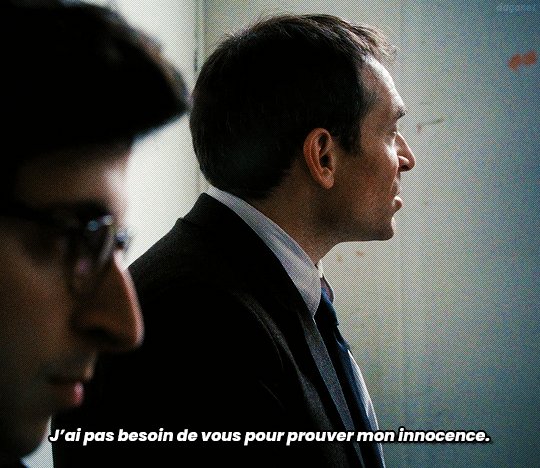

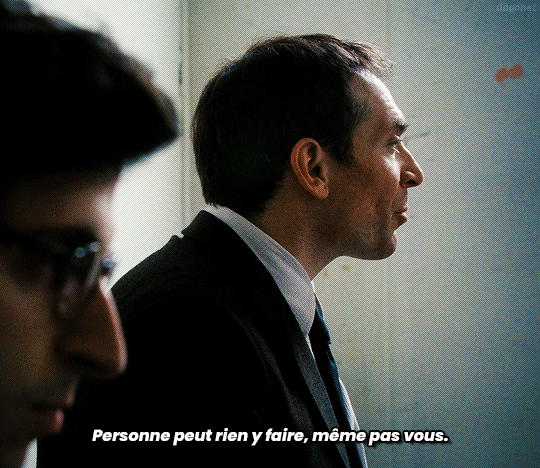
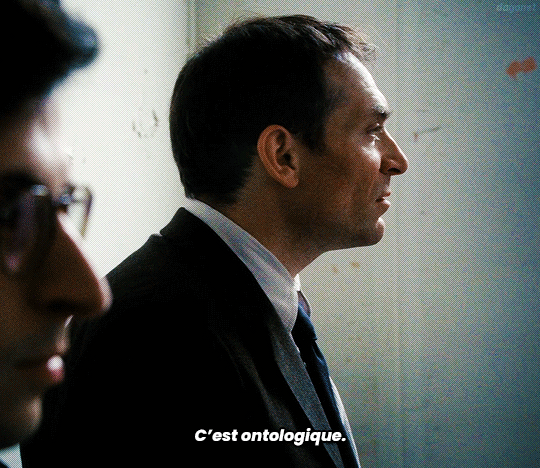
Le Procès Goldman (2023) réal. Cédric Kahn
13 notes
·
View notes
Text




Le procès Goldman, Cédric Kahn, 2023
Mon kink c'est les films de procès avec leurs lots de joutes verbales. Et celui-ci m'a passionné de bout en bout. Inspirée d'une histoire vraie, le procès dresse le portrait de ce personnage atypique. Révolutionnaire radical, demi-frère de Jean-Jacques Goldman, fils de parents résistants juifs polonais, Pierre Goldman fait preuve d'une honnêteté redoutable malgré les soupçons qui pèsent sur lui concernant un braquage qui a mal tourné.
Tous les acteurs sont excellents et en premier lieu Arieh Worthalter.
★★★✰✰
3 notes
·
View notes
Note
Coucou ! Tu as vu cette interview de la veuve de Pierre Goldman ? Comme tu as parlé du film qui sortait je me suis dit que ça t'intéresserait.


Waah, merci beaucoup, c'est très intéressant. Effectivement, ça invite à reconsidérer le film différemment.
Je pensais sincèrement qu'elle était présente pendant le procès, je ne pensais pas que ça avait été inventé pour le film. Merci pour ce partage, faut que je le relise mais c'est riche !
5 notes
·
View notes
Text
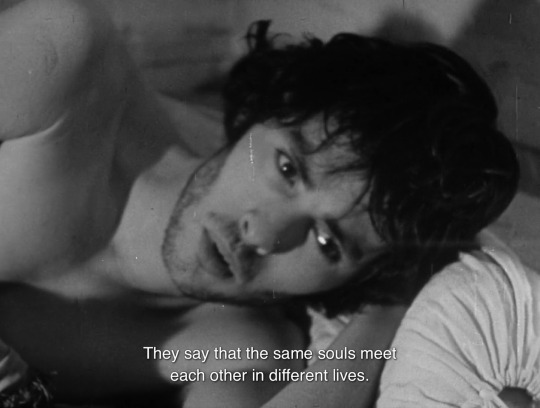
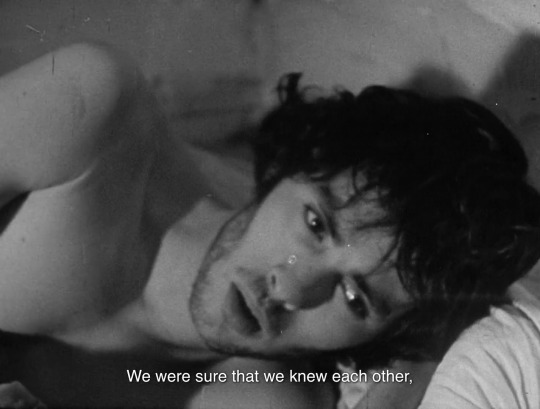


296 notes
·
View notes
Text
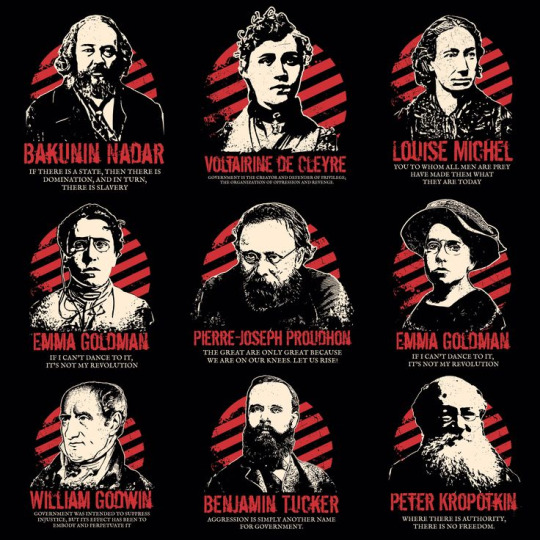
#mikhail bakunin#voltairine de cleyre#louise michel#emma goldman#pierre joseph proudhon#williamgodwin#benjamin tucker#peter kropotkin#antifa#antifascist#antifaschistische aktion#anarchism#anarchist#anarchocommunism#anarchopunk#anarcho syndicalism#anarchofeminism#antiauthoritarian#antinazi#anti capitalism#anti police#anti cop#eat the rich#eat the fucking rich#ausgov#politas#auspol#tasgov#taspol#australia
10 notes
·
View notes
Text
youtube
a lusty focus on brooding Pierre Clémenti in the film Wheel Of Ashes, dir. Peter Emmanuel Goldman, 1969; music - Inerte by Beso
5 notes
·
View notes
Text
i honestly don't know what i expected from the first chapter of buttercup's baby, but it For Sure didn't involve fezzik getting suddenly possessed by the ghost of a midwife to help with the delivery. bill what the fuck.
#also westley's first mate pierre shows up and the two of them 1000% had a side thing while they were at sea#quoth the goldman: '...he had been King of the Sea for several years and‚ well‚ things happened.'#the princess bride
0 notes
Text
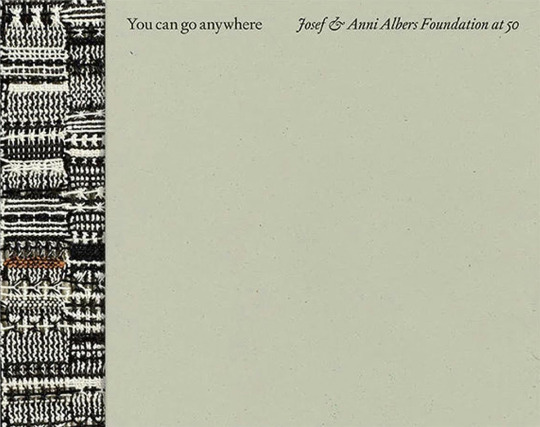
You can go anywhere – The Josef and Anni Albers Foundation at 50, Edited by Edouard Detaille and Willem van Roij, Designed by Graphic Thought Facility, The Josef and Anni Albers Foundation, Bethany, CT, 2022 [Yvon Lambert, Paris. Les presses du réel, Dijon. David Zwirner Books, New York, NY]





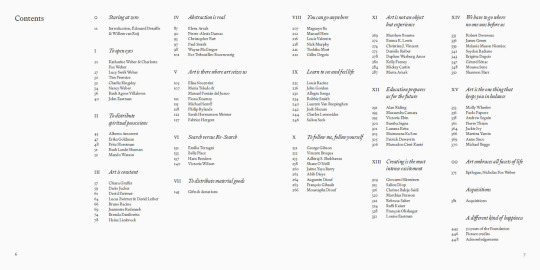

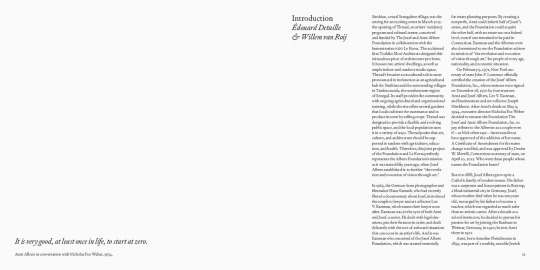
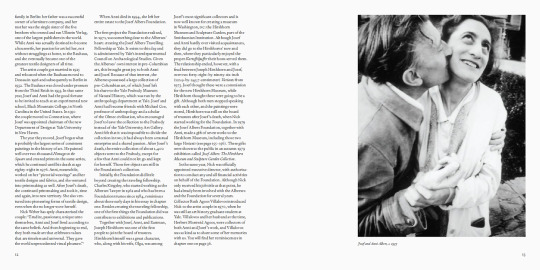

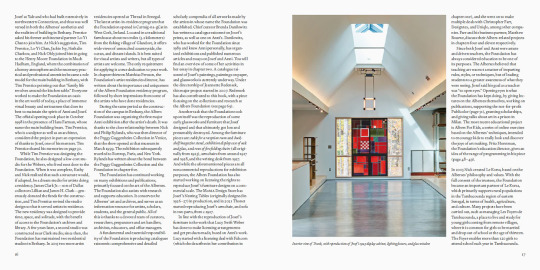

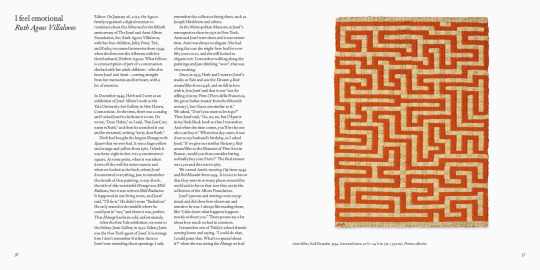

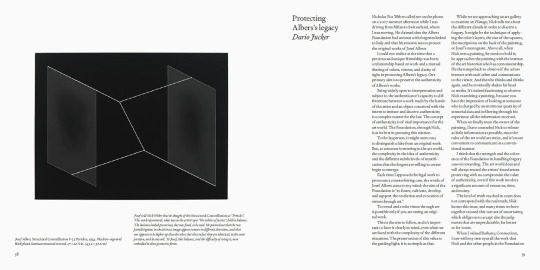



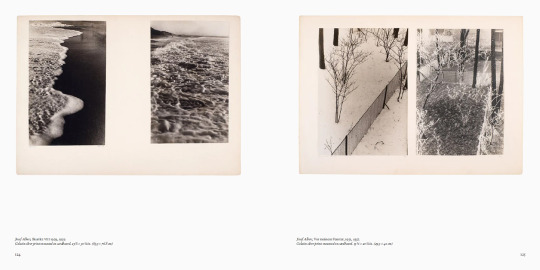
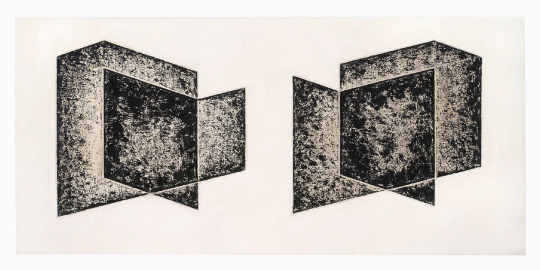
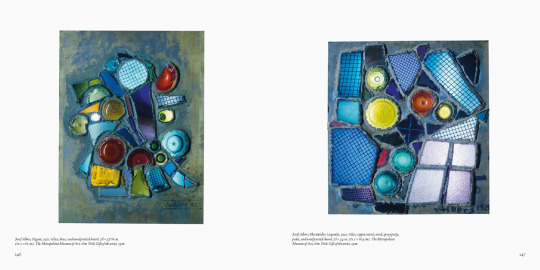
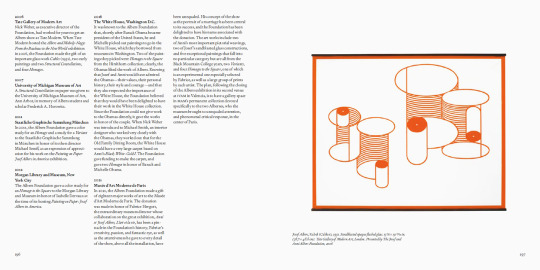


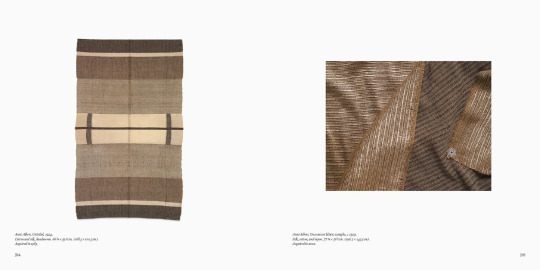


Contributors: Laurent Van Reepinghen, Adhiraj Shekhawat, Josh Slocum, Louis Valentin, Matthias Persson, Charles Lemonides, Charlotte Fox Weber, Robbie Smith, Lucy Swift Weber, Victoria Ebin, Fiona Kearney, Hans Renders, Brigitte Degois, Eve Tribouillet-Rozencweig, Gilles Degois, Vincent Broqua, Fabrice Hergott, Raffi Kaiser, Francois Olislaeger, Giovanni Hänninen, Alberto Amoretti, Erika Goldman, Francois Gibault, Belle Place, Nancy Weber, Patrick Dewavrin, Nick Murphy, Bruno Racine, Gerard Sénac, Louis Racine, Daniele Reiber, Robert Devereux, Elena Arzak, Marta Arzak, Daphne Warburg Astor, Atlante, Chiara Graffer, Dario Jucker, Matthew Bourne, Wayne McGregor, Rebecca Salter, Heinz Liesbrock, Paul Smith, Emilia Terragni, Michael Semff, Mando Watson, Shane O'Neill, Nicolas Fox Weber, Paolo Papone, Pierre-Alexis Dumas, Manuel Herz, Alan Riding, Elisa Nocentini, María Toledi, Manuel Fontan del Junco, Christopher Farr, Katherine Weber, Michael Beggs, Mickey Cartin, Brenda Danilowitz, John Eastman, Louise Eastman, Kelly Feeney, George Gibson, John Gordon, Allegra Itsoga, James Green, Jackie Ivy, Fritz Horstman, Charles Kingsley, Emma K. Lewis, Pierre Thiam, Philip Rylands, Andy Seguin, Clarisse Baleja Saïdi, Sarah Meister, Toshiko Mori, Melanie Niemiec, Tim Prentice, Jeannette Redensek, Ruth Lande Shuman, Anne Sisco, Christine Vincent, Molly Wheeler, Victoria Wilson, Martina Yamin, Paul Neale, David Pilling, Ruth Agoos Villalovos, Magueye Ba, Seydou Badiane, Jaime Yaya Barry, Shannon Hart, Maimouna Ka Sow, Saliou Seck, Moussa Sene, Mamadou Cisse Kante, Bamba Sagna, Lassana Keita, Massamba Camara, Abib Dieye, Saliou Diop, Augustin Diouf, Moustapha Diouf, Lucas Zwirner, David Leiber, David Zwirner
#graphic design#art#design#textile#art education#design education#school#catalogue#catalog#cover#box#anni albers#josef albers#edouard detaille#willem van roij#graphic thought facility#the josef and anni albers foundation#yvon lambert#les presses du réel#david zwirner#david zwirner books#2020s
14 notes
·
View notes
Text
Les Enfoirés chantent Starmania
Les restos du coeur est une association d'aide alimentaire , créer par l'humoriste / comédien Coluche en 1985 ( avec pour parrain Daniel Balavoine ... ) Pour médiatisé et récolter plus facilement des dons, l'idée viendra à Coluche de créer un hymne chanter par des célébrités française pour son association :
youtube
Malgré la mort de Coluche en 1986 , l'association va survivre ( elle existe toujours aujourd'hui) et tout les ans un show est mis en scène et interprété par les artistes français bénévoles , que l'on appelle :
La Troupe des Enfoirés !

Mais quel rapport avec Starmania ?
En 1993 , les Enfoirés reprendrons pour leurs troisième spectacle , les Chansons de Plamondon et Berger qui serons repris par 28 artistes :
Les Acteurs : Josiane Balasko ; Michel Blanc ; Valérie Lemercier ; Claire Nadeau ; Martin Lamotte
Les Humoristes : Élie Kakou ; Les Nuls ; Muriel Robin ; Pierre Palmade ; Smaïn
Les Chanteurs : Diane Dufresne ; France Gall ; Renaud Hantson ; Peter Kingsbery ;Jean-Jacques Goldman ; Patrick Bruel ; Michael Jones ; Jacques Dutronc ; Patricia Kaas ; Liane Foly ; Yannick Noah ; Tonton David ; Vanessa Paradis ; Florent Pagny ; Alain Lanty

Le spectacle aura le droit à une sortie VHS et un Cd
Le CD :
La captation n'est pas trouvable dans son entièreté
youtube
**
Pour plus de Starmania
ou pour découvrir d'autres comédie musicale française :)
Lien Masterlist : https://www.tumblr.com/unknown171204/748996810302980096/masterlist?source=share
4 notes
·
View notes
Text

Footnotes 101 - 188
[101] Toby Rollo, “Feral Children: Settler Colonialism, Progress, and the Figure of the Child,” Settler Colonial Studies (June 2016), 1–20.
[102] Gilles Deleuze, “Postscript on the Societies of Control,” October 59 (1992), 3–7.
[103] Institute for Precarious Consciousness, “We Are All Very Anxious,” WeArePlanC.org, April 4, 2014, http://www.weareplanc.org/blog/we-are-all-very-anxious/.
[104] Sitrin, Everyday Revolutions, 37.
[105] Ivan Illich, Tools for Conviviality (New York: Harper & Row, 1973), 12.
[106] Our readings and understandings of Illich’s work, and our understanding of conviviality in particular, is indebted to conversations with friends who either knew Illich personally or worked closely with his ideas, including Gustavo Esteva, Madhu Suri Prakash, Dan Grego, Dana L. Stuchul and Matt Hern.
[107] Quoted in The Invisible Committee, To Our Friends, 232–3.
[108] Marina Sitrin, ed., Horizontalism: Voices of Popular Power in Argentina (Oakland: AK Press, 2006); Sitrin, Everyday Revolutions.
[109] Rebecca Solnit, A Paradise Built in Hell: The Extraordinary Communities That Arise in Disaster (New York: Penguin Books, 2009), 2.
[110] Idem, 7.
[111] Leanne Simpson, “Dancing the World into Being: A Conversation with Idle No More’s Leanne Simpson,” Yes! Magazine, March 5, 2013, http://www.yesmagazine.org/peace-justice/dancing-the-world-into-being-a-conversation-with-idle-no-more-leanne-simpson.
[112] Quoted in Tony Manno, “Unsurrendered,” Yes! Magazine, 2015, http://www.arcgis.com/apps/MapJournal/index.html?appid=b24e304ce1944493879cba028607dfc7.
[113] INCITE! Women of Color Against Violence, “INCITE! Critical Resistance Statement,” 2001, http://www.incite-national.org/page/incite-critical-resistance-statement.
[114] Rachel Zellars and Naava Smolash, “If Black Women Were Free: Part 1,” Briarpatch, August 16, 2016, http://briarpatchmagazine.com/articles/view/if-black-women-were-free.
[115] Victoria Law, “Against Carceral Feminism,” Jacobin, October 17, 2014, https://www.jacobinmag.com/2014/10/against-carceral-feminism/.
[116] Creative Interventions, “Toolkit,” CreativeInterventions.org, http://www.creative-interventions.org/tools/toolkit/ (accessed December 1, 2016).
[117] Quoted in carla bergman and Corine Brown, Common Notions: Handbook Not Required, 2015.
[118] Gustavo Esteva, interview by carla bergman and Nick Montgomery, video, 2012.
[119] Kelsey Cham C., Nick Montgomery, and carla bergman, interview by carla bergman and Nick Montgomery, October 26, 2013.
[120] Marina Sitrin, “Occupy Trust: The Role of Emotion in the New Movements,” Cultural Anthropology (February 2013), https://culanth.org/fieldsights/75-occupy-trust-the-role-of-emotion-in-the-new-movements.
[121] Gustavo Esteva and Madhu Suri Prakash, Grassroots Postmodernism: Remaking the Soil of Cultures (London: Zed Books, 1998), 91.
[122] Day, Gramsci Is Dead, 200.
[123] Zainab Amadahy, Wielding the Force: The Science of Social Justice, Smashwords edition (Zainab Amadahy, 2013), 36.
[124] Esteva and Prakash, Grassroots Postmodernism, 89.
[125] Amadahy, Wielding the Force, 149.
[126] Emma Goldman, “The Hypocrisy of Puritanism,” in Red Emma Speaks: An Emma Goldman Reader, ed. Alix Kates Shulman (Amherst: Humanity Books, 1998), 157.
[127] Chris Dixon, “For the Long Haul,” Briarpatch Magazine, June 21, 2016, http://briarpatchmagazine.com/articles/view/for-the-long-haul.
[128] We first encountered the concept of “public secret” as a way of getting at the affect of anxiety today, described by the Institute for Precarious Consciousness. Earlier uses can be traced to the work of Ken Knabb (which credits the concept to Marx) and his curation of Situationist writing, as well as Jean-Pierre Voyer’s reading of Reich. See Institute for Precarious Consciousness, “Movement Internationalism(s),” Interface 6/2; Jean-Pierre Voyer, “Wilhelm Reich: How To Use,” in Public Secrets, trans. Ken Knabb (Bureau of Public Secrets, 1997), http://www.bopsecrets.org/PS/reich.htm; Jean-Pierre Voyer to Ken Knabb, “Discretion Is the Better Part of Value,” April 20, 1973, http://www.bopsecrets.org/PS/Reich.add.htm.
[129] This was suggested to us by Richard Day.
[130] brown, interview by carla bergman and Nick Montgomery.
[131] Amador Fernández-Savater, “Reopening the Revolutionary Question,” ROAR Magazine 0 (December 2015).
[132] Federici, interview by carla bergman and Nick Montgomery.
[133] Touza, interview by carla bergman and Nick Montgomery.
[134] Friedrich Nietzsche, On the Genealogy of Morals and Ecce Homo, ed. Walter Kaufmann (New York: Vintage, 1989), 32.
[135] Foucault, “Preface.”
[136] Cited in Ashanti Alston, “An Interview with Ashanti Alston,” interview by Team Colours, June 6, 2008, https://inthemiddleofthewhirlwind.wordpress.com/an-interview-with-ashanti-alston/.
[137] Thoburn develops his conception of a “militant diagram” through a reading of Deleuze and Guattari, and we have found it useful in thinking about rigid radicalism as an affective tendency that is irreducible to the gestures, habits, practices, and statements that are simultaneously its fuel and its discharge. See Nicholas Thoburn, “Weatherman, the Militant Diagram, and the Problem of Political Passion,” New Formations 68/1 (2010), 125–42.
[138] Colectivo Situaciones, “Something More on Research Militancy: Footnotes and Procedures and (In)Decisions,” 5.
[139] Thoburn, “Weatherman, the Militant Diagram, and the Problem of Political Passion,” 129; Cathy Wilkerson, Flying Close to the Sun: My Life and Times as a Weatherman (New York: Seven Stories Press, 2007), 265–300.
[140] Bernardine Dohrn, Bill Ayers, and Jeff Jones, eds., Sing a Battle Song: The Revolutionary Poetry, Statements, and Communiques of the Weather Underground 1970–1974 (New York: Seven Stories Press, 2006), 18.
[141] Bill Ayers, Fugitive Days: Memoirs of an Antiwar Activist (Boston: Beacon Press, 2009), 154.
[142] Esteva, interview by Nick Montgomery and carla bergman.
[143] Thoburn, “Weatherman, the Militant Diagram, and the Problem of Political Passion,” 134.
[144] Esteva, interview by Nick Montgomery and carla bergman.
[145] Sitrin, interview by Nick Montgomery and carla bergman.
[146] Emma Goldman, Living My Life (New York: Dover Publications, 1970), 54.
[147] amory starr, “Grumpywarriorcool: What Makes Our Movements White?,” in Igniting a Revolution: Voices in Defense of the Earth (Oakland: AK Press, 2006), 379.
[148] Idem, 383.
[149] crow, Black Flags and Windmills, 81.
[150] Alston, interview by Nick Montgomery and carla bergman.
[151] Richard J. F. Day, interview by Nick Montgomery and carla bergman, phone, March 18, 2014.
[152] Alston, interview by Nick Montgomery and carla bergman.
[153] CrimethInc., “Against Ideology?,” CrimethInc.com, 2010, http://www.crimethinc.com/texts/atoz/ideology.php.
[154] Erich Fromm, Man for Himself: An Inquiry Into the Psychology of Ethics (Oxon: Routledge, 1947), 235.
[155] See Raoul Vaneigem, The Movement of the Free Spirit, trans. Randall Cherry and Ian Patterson, revised edition (New York, Cambridge, MA: Zone Books, 1998); Federici, Caliban and the Witch, 21–60.
[156] Nietzsche, On the Genealogy of Morals and Ecce Homo, 33.
[157] Idem, 36.
[158] Quoted by Maya Angelou in Malcolm X, Malcolm X: An Historical Reader, ed. James L. Conyers and Andrew P. Smallwood (Durham: Carolina Academic Press, 2008), 181.
[159] Kelsey Cham C., “Radical Language in the Mainstream,” Perspectives on Anarchist Theory 29 (2016), 122–3.
[160] Asam Ahmad, “A Note on Call-Out Culture,” Briarpatch, March 2, 2015, http://briarpatchmagazine.com/articles/view/a-note-on-call-out-culture.
[161] Ngọc Loan Trần, “Calling IN: A Less Disposable Way of Holding Each Other Accountable,” Black Girl Dangerous, December 18, 2013, http://www.blackgirldangerous.org/2013/12/calling-less-disposable-way-holding-accountable/.
[162] Ibid.
[163] Chris Crass, “White Supremacy Cannot Have Our People: For a Working Class Orientation at the Heart of White Anti-Racist Organizing,” Medium, July 28, 2016, https://medium.com/@chriscrass/white-supremacy-cannot-have-our-people-21e87d2b268a.
[164] Ibid.
[165] Ursula Le Guin, The Lathe of Heaven (New York: Scribner, 1999), 137.
[166] This section title is borrowed from Eve Sedgwick, from whom we’ve also taken the concept of paranoid reading. See Eve Kosofsky Sedgwick, “Paranoid Reading and Reparative Reading, Or, You’re so Paranoid, You Probably Think This Essay Is about You,” in Touching Feeling: Affect, Pedagogy, Performativity (Duke University Press, 2003), 124–51.
[167] Killjoy, Interview with Margaret Killjoy.
[168] Sedgwick, “Paranoid Reading and Reparative Reading, Or, You’re so Paranoid, You Probably Think This Essay Is about You.”
[169] Day, interview by Nick Montgomery and carla bergman.
[170] Mik Turje, interview by Nick Montgomery and carla bergman, March 4, 2014.
[171] Walidah Imarisha, Angels with Dirty Faces: Three Stories of Crime, Prison, and Redemption (Oakland: AK Press, 2016), 113–15.
[172] Walidah Imarisha, interview by Nick Montgomery and carla bergman, email, December 22, 2015.
[173] Federici, interview by Nick Montgomery and carla bergman.
[174] John Holloway, Change the World Without Taking Power: The Meaning of Revolution Today, 2nd Revised Edition (London: Pluto Press, 2005), 215.
[175] Coulthard, interview by Nick Montgomery and carla bergman.
[176] This turn of phrase comes to us from Stevphen Shukaitis’s wonderful book Imaginal Machines: Autonomy & Self-Organization in the Revolutions of Everyday Life (New York: Autonomedia, 2009), 141–2, http://www.minorcompositions.info/wp-content/uploads/2009/10/ImaginalMachines-web.pdf.
[177] This idea is paraphrased from Lauren Berlant and her conception of “cruel optimism,” a relation in which our attachments become obstacles to our flourishing. See Lauren Berlant, Cruel Optimism (Durham: Duke University Press, 2011).
[178] Federici, interview by Nick Montgomery and carla bergman.
[179] Zainab Amadahy, interview by Nick Montgomery and carla bergman, January 15, 2016.
[180] Jo Freeman, “Trashing: The Dark Side of Sisterhood,” JoFreeman.com, n.d., http://www.jofreeman.com/joreen/trashing.htm.
[181] Marge Piercy, “The Grand Coolie Dam,” (Boston: New England Free Press, 1969).
[182] See Jo Freeman, “The Tyranny of Structurelessness,” Ms. Magazine, July 1973.
[183] Silvia Federici, “Putting Feminism Back on Its Feet,” Social Text 9/10 (1984), 338–46.
[184] See Raúl Zibechi, Dispersing Power: Social Movements as Anti-State Forces, trans. Ramor Ryan (Oakland: AK Press, 2010); Zibechi, Territories in Resistance.
[185] Silvia Federici, “Losing the sense that we can do something is the worst thing that can happen,” interview by Candida Hadley, Halifax Media Co-op, November 5, 2013, http://halifax.mediacoop.ca/audio/losing-sense-we-can-do-something-worst-thing-can-h/19601.
{1} BIPOC is an acronym for Black, Indigenous, and People of Color. We understand these not as ethnic categories or essentialist identities, but complex political categories forged in struggles against white supremacy and settler colonialism. For instance, the creation of BIPOC-specific spaces or “caucuses” within various struggles has created opportunities for understanding how racism or whiteness is playing out, and how it can be confronted effectively.
{2} ISIL stands for the Islamic State of Iraq and the Levant, often used interchangeably with Islamic State of Iraq and Syria (ISIS).
{3} Note: when we interviewed Silvia Federici, we were still using the phrase “sad militancy” in place of “rigid radicalism.” The original terminology is retained throughout.
#joy#anarchism#joyful militancy#resistance#community building#practical anarchy#practical anarchism#anarchist society#practical#revolution#daily posts#communism#anti capitalist#anti capitalism#late stage capitalism#organization#grassroots#grass roots#anarchists#libraries#leftism#social issues#economy#economics#climate change#climate crisis#climate#ecology#anarchy works#environmentalism
6 notes
·
View notes
Text
3 movies i saw this week and why you should watch them.
(this is my 260th post but the first one i use a title for.)
i hesitated to write this in french but i choose english to be understood by more people.
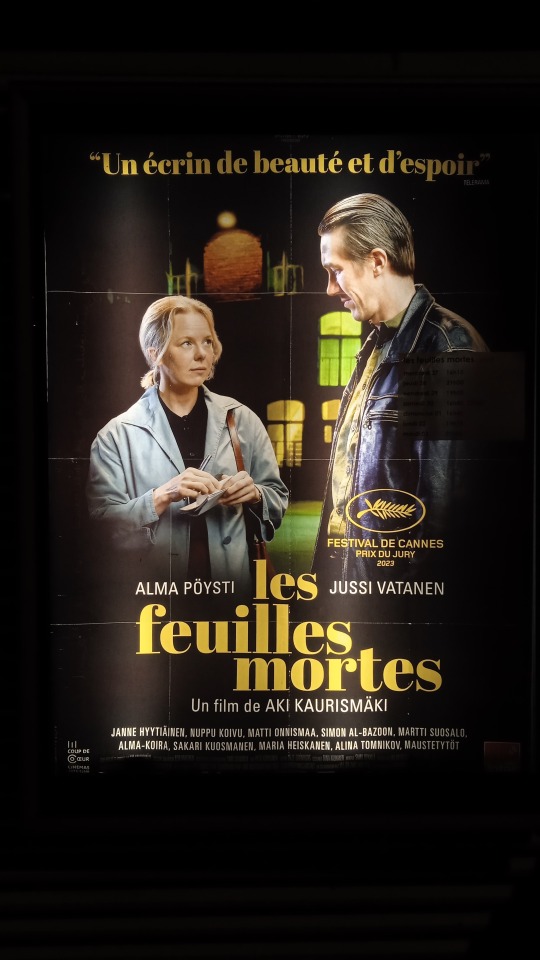
i'm starting with the first movie i have seen on monday evening with my mom : "kuolleet lehdet" by aki kaurismäki. so at first, we went there not really knowing what to expect, she had read me the summary just before we left and i almost didn't want to go. however, this movie is amazing. the cinematography and the colors are gorgeous and the characters really endearing. there are a lot of songs in finnish (both sang by characters and outside of the film) that gave this already slow and melancholic art piece several moments outside of time. what i love too is the reality of the characters, the situations : they are just two proletarian workers yet they are shown to be deserving to be the main characters. we see them working, being friendly with their colleagues, having fun with them but also facing exhaustion at the end of the day as well as being seen as negligible quantity and easily replaceable by their bosses. the relationship between the two main characters is really sweet as well as their relationships with their own friends and it shows love in a way i particularly love : there is no need to know the name of the other or to do romantic things, just being together and feeling happy with eachother is enough.

the second film i saw on wednesday night was "anatomie d'une chute" by justine triet, it had won the palme d'or at this year's cannes festival. so my mom and i went to see it, again i didn't really know what to expect except that there was actors i love in it and that it was a trial movie also about medias and how they make people percieve things. and this prize was so deserved, every actor and actress was incredible, some scenes were so well made, especially a play with sound and image as well as what we see, what movements did the camera and what it showed us. it sometimes got so close of a documentary more than a fictional movie. i have so many thoughts about it, truly one of the best movies of the year but many people talked about it so i can't really add anything new to say. but if you can, go watch it.
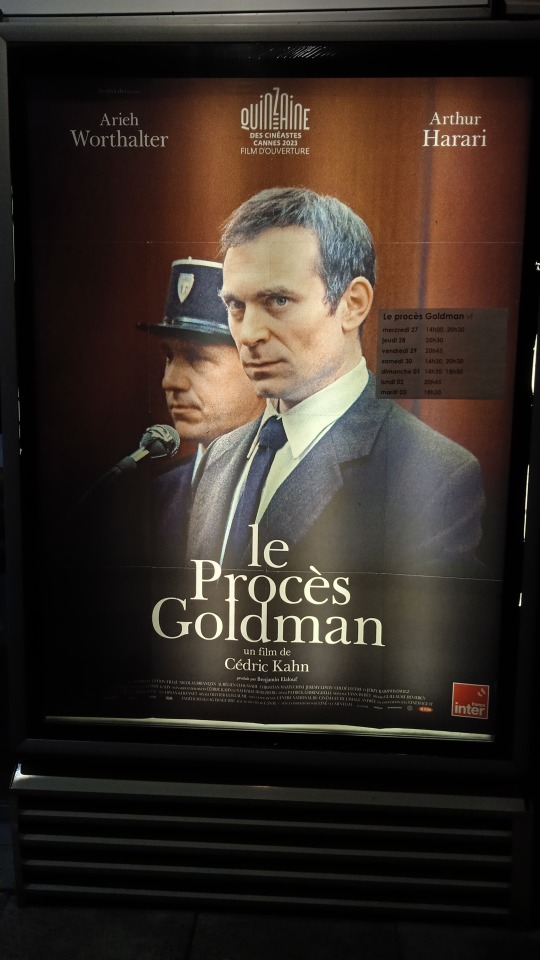
the last film i have seen this week was "le procès goldman", directed by cédric kahn. i saw it just yesterday, alone and i already knew pierre goldman's story very well, i learned about this movie in may in a french tv emission about cannes and have been really waiting to see it since. it is most certainly my favorite but for very personal reasons. the story seems very niche : it is a huis-clos, set in 1976, of the second trial of a far-left activist, son of jewish partisans from poland (and step-brother of a very popular singer, who is still the favorite personality of french people and has been so for years) who was accused of several robberies as well as the murders of two pharmacists, but if he admits the robberies, he claims his innocence for the murders. this movie is not only showing the faillures of the racist police and racist judiciary systems in france but also has very interesting conversations between the characters about being jewish and therefore racialized. but it also touches a subject that is so specific and personal, i never saw a movie talk about it : the feeling that when you come from a family that suffered and/or fought so much, you feel like no matter how much you fight, it will never be enough to live up to this history, even if you're not asked to. you feel like you never deserved to be born and live when you know what your family went through. there is a sentence he said that marked me : "i was born and died on the 22th june 1944.". to me, it is one of the best way the jewish experience in a racist society and racist country like france has ever been represented. and i really urge you, jewish or not, to go see it and especially if you are not so you can understand what it feels like a little bit more. the acting of everyone is superb, showing so well the intensity that reigns in this room, but the main actor, arieh worthalter, is phenomenal. the actors are well casted and look like their real life counterparts. the realisation is really beautiful even if there are around three or four places shown in the movie. i love how everything about the movie is simple : a basic white writing font on a black background giving us the contexte and the title, i think there is no music as well. the costumes are gorgeous too and i love how many details were put into the fabrics, patterns. i really want to meet the director to tell him how this movie made me feel so seen.
#les feuilles mortes#anatomie d'une chute#le procès goldman#pitié allez voir le procès goldman vraiment c'est une des meilleures description de ce que c'est d'être juif en france.#french side of tumblr#up the baguette#cinéma français#aki kaurismäki#fallen leaves#kuolleet lehdet#justine triet#festival de cannes#cinephile#french cinema#french stuff#french movie#jewish stuff#jewish history#judaism#jewish culture#communism#cédric kahn#pierre goldman#jean jacques goldman#jean-jacques goldman#arieh worthalter#jewish cinéma#jumblr
12 notes
·
View notes
Text
“La filosofía no debe ser un sistema cerrado de reglas y teorías, sino un proceso de interrogación constante y desestabilización de conceptos establecidos”
Jacques Derrida
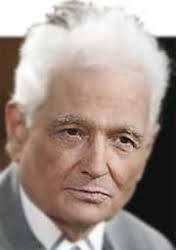
Fue un filósofo francés de origen argelino nacido en El-Biar Argelia Francesa en julio de 1930. Conocido popularmente por desarrollar un análisis semiótico conocido como deconstrucción. Señalado por algunos como el máximo exponente de la corriente denominada filosofía de la diferencia.
Primeros años
Jacques nació en el seno de una familia judío- sefardí de clase media acomodada originaria de Toledo. Sufrió la represión del gobierno de Vichy siendo expulsado en 1942 de su instituto por motivos racistas. Este trauma que recordaría toda su vida le ayudaría a construir su personalidad.
Soñó con ser futbolista profesional, participó en diversas competencias y es en esa época de juventud, que leyó con pasión a novelistas clásicos y filósofos y escritores como Albert Camus, Rousseau, Nietzsche y André Guide.
En 1953 ingresó a la Escuela Normal Superior francesa en donde descubrió las obras de Kierkegaard, Martín Heidegger y Louis Althusser, este último sería su tutor y amigo de toda la vida.
En 1957 se casa con la psicoanalista y traductora Marguerite Aucouturier con quien procreó 2 hijos. De vuelta en Argelia para cursar su servicio militar conoce a Pierre Bourdieu mientras imparte clases de inglés y de francés, regresando a Francia en 1959.
En 1965 obtiene el cargo de Director de Estudios del departamento de filosofía de la École Normale Supérieure en donde establece amistad con Georges Canguilhem y Michel Foucault.
Encuentro sobre las ciencias francesas
En 1964 participa en el Encuentro sobre las ciencias francesas en Baltimore junto con Jacques Lacan, Roland Barthes, Jean Hyppolite y Lucien Goldman lo cual resultará decisivo para su reconocimiento internacional, y es ahí en donde conoce al director del departamento de literatura comparada de la Universidad de Yale y miembro de la Yale School of Deconstruction, Paul Man.
Obras
En 1967 publica al mismo tiempo tres obras capitales de su pensamiento, la primera, titulada “De la Gramatología”, realiza un análisis sistemático del origen del lenguaje en las obras de Saussure, Rousseau y Levi-Strauss. En su segunda obra titulada “La escritura y la diferencia”, ofrece una recopilación de artículos de Foucault, Levinas, Husserl, Heidegger, Hegel, Bataille, y el poeta y dramaturgo Artaud.
Deconstrucción
Jacques Derrida es reconocido entre otras cosas por haber desarrollado la “Deconstrucción”, el cual hace referencia a un acto bastante complejo en donde se analizan paradigmas conceptuales en los que se ha asentado la sociedad occidental desde los inicios de la filosofía griega hasta nuestros tiempos y cuya interpretación y aplicaciones pueden ser muy distintas, y que marcaron la producción filosófica de buena parte del siglo XIX y XX.
Gramatología
Otro concepto publicado en uno de sus libros de Derrida denominado “De la Gramatología”, desarrolla todas las consecuencias que sus análisis de la fenomenología trascendental tienen para la noción de “escritura” en contraposición a la primacía del “Habla”, haciendo del fonocentrismo, la base del logocentrismo. En donde para Derrida el concepto de escritura es un concepto cercano a la semiótica o ciencia de los signos, abarcando todo lo inabarcable al juego de referencias significantes que constituye para el el lenguaje.
Deconstrucción y psicoanálisis
Jacques Derrida siempre argumentó que “la deconstrucción del logocentrismo no es un psicoanálisis de la filosofía,” y trató de evitar la comparación del inconsciente psicoanalítico, desarrollando para ello la noción de “archivo”, que no implica la inscripción inconsciente de lo reprimido u olvidado, sino mas bien un acto consciente de “archivar”, en donde el “archivo”, es el suplemento de una memoria que ya no es la vulgar concepción de la memoria espontánea, sino mas bien una memoria “protética” del soporte técnico.
La discusion de Derrida con el psicoanálisis no concierne únicamente a la deconstrucción de los textos de Freud sino también a los de Jacques Lacan, y especialmente a su famoso “seminario de la carta robada” basado en la interpretación Lacaniana de un texto de Edgar Allan Poe.
Al deconstruir la obra de eruditos anteriores, Derrida trata de demostrar que el lenguaje está cambiando de una forma constante.
Fue precursor de una gran reflexión critica sobre la institución de la filosofía y sus formas de enseñanza de esta materia de tal forma que lo llevó a crear el Colegio Internacional de Filosofía que presidió hasta 1985.
Como activista político apoyó a los intelectuales checos en contra del “apartheid” sudafricano, o por su preocupación por el pueblo palestino.
Muerte
Derrida falleció en París en octubre de 2004 a causa de un cáncer de páncreas a la edad de 74 años.
Fuentes: Wikipedia, psicologiaymente.com, philosphica.info, biografiasyvidas.com, buscabiografias.com
#jacques derrida#filosofía#filósofos#deconstruccion#frases de reflexion#notasfilosoficas#frases de escritores#frases de filósofos#francia
3 notes
·
View notes
Text
Esta compilación de textos es por gusto individual. Las elecciones son, más o menos, las lecturas que me han influenciado en mi posición como anarquista durante mi vida. Si bien, no todos los textos son acerca de ideas o experiencias ácratas, han sido cercanos sus planteamientos revolucionarios a las teorías y prácticas contra el mundo de la autoridad. Por otro lado, seguro hay otros que se me han quedado en el tintero que son más fundamentales, y otras que desconozco, pero insisto: es mero gusto individual.
Debido a que me han preguntado sobre libros introductorios al anarquismo y la lucha revolucionaria antiautoritaria, he decidido compilar textos muy diversos, de distintas tendencias y formas, que pueden servir para un acercamiento general acerca de la posición por la anarquía. Están en orden alfabético por el título del libro, hay un link de descarga al costado del nombre, y una reseña de cada uno.
Los que no tengo completos son: “Jacob. Recuerdos de un rebelde” de Bernard Thomas; y “La historia de la Angry Brigade. Nos estamos acercando” de Fernando Rocha. Si alguien los tiene por favor contactarse a: [email protected]
Las reseñas fueron extraídas de distintas páginas de internet. Decidí no mostrar las fuentes porque no lo consideré importante para el objetivo de la iniciativa.
¡Apoyen con la difusión!
¡Viva la anarquía!
LISTA DE TEXTOS
1- Adiós prisión: El relato de las fugas más espectaculares- Juan José Garfia
2-Ai Ferri corti- Anonimx
3- Anarcofeminismo y Louise Michel- Marian Leighton
4- Anarquismo es movimiento- Tomas Ibañez
5- Anarquismo: Lo que significa realmente- Emma Goldman
6- Autobiografía de un irreductible- Claudio Lavazza
7- Caminar- Henry Thoreau
8-Ch`Ixinakax Utxiwa: Una reflexión sobre prácticas y discursos descolonizadores- Silvia Rivera Cusicanqui
9- Contra el leviatán y contra su historia- Fredy Perlman
10- Contra los pastores contra los rebaños- Albert Libertad
11- Cuando cae el telón- Bruno Filippi
12- Cuentos breves- Rafael Barret
13- De la huelga salvaje a la autogestión generalizada- Raoul Vaneigem
14- Desierto- Anonimx
15- Dios y el estado- Mijail Bakunin
16- El abismo se repuebla- Jaime Semprun
17-El desorden de la libertad- Massimo Passamani
18- El jardín de las peculiaridades- Jesús Sepúlveda
19- Entre la plataforma y el partido- Patrick Rossineri
20- Fragmentos de antropología anarquista- David Graeber
21- Hacia la nada creadora- Renzo Novatore
22- Hijo de ladrón- Manuel Rojas
23- Homenaje a Cataluña- George Orwell
24- Jacob: Recuerdos de un rebelde- Bernard Thomas
25- La anarquía funciona- Peter Gerderloos
26- La anarquía y el método del anarquismo- Errico Malatesta
27- La conquista del pan- Piotr Kropotkin
28- La historia de Angry Brigade. Nos estamos acercando- Servando Rocha
29- La ideología anarquista- Ángel Capelleti
30- La insurrección que viene- Comité invisible
31- La revolución desconocida- Volin
32- La sociedad contra el estado- Pierre Clastres
33- La sociedad del espectáculo- Guy Debord
34- La tensión anarquista- Alfredo Bonnano
35- Los desposeídos- Ursula K. Le Guin
36- Los invisibles- Nanni Balestrini
37- Memoria de un revolucionario- Victor Serge
38- Nuestra necesidad de consuelo es insaciable- Stig Dagerman
39- Odio las mañanas- Jean Marc Rouillan
40- Pensamiento crítico como arma anarquista- Wolfi Landstreicher
41-Pequeña antología anarcofeminista- Varixs autorxs
42- Taz. Zona temporalmente autónoma- Hakim Bey
43- Textos escogidos- Lewis Mumford
44- Viviendo mi vida- Emma Goldman
Filosofia Antiautoritaria
3 notes
·
View notes
Text

Ça me tue, ce début de critique sur le film sur le frère de Jean-Jacques Goldman (qui au passage a l'air exceptionnel) parce que faut vraiment avoir cherché JJG dans le film pour écrire ça ET AUSSI si je vais voir le film, ça va me tuer de rire si dans le générique, il y a ACTEUR RANDOM : Jean-Jacques Goldman
5 notes
·
View notes
Text
a) cette choré à la con reste immonde mais je ne me mens pas à moi-même, je sais que je m'en souviendrai jusqu'à la fin des temps, de la même manière que je n'ai jamais oublié celle de Laissez-Moi Danser et Paris Latino
b) ça m'éclate qu'Axel devienne bg quand il enlève ses lunettes, c'est comme dans les films
c) sans surprise les quatre qui ont le plus assuré vocalement pendant l'hymne sont les quatre demi-finalistes
d) fascinée par Goldman qui fait chanter plein de chansons de son père et semble être en paix avec son statut de nepo baby, mais qui ne se laisse jamais filmer en train de lui-même les chanter
pendant la soirée profs-finalistes de cette semaine, ils chantaient tous tour à tour l'hymne autour du piano, sauf lui qui a refusé d'enchainer quand Lucie a essayé de le lancer
Julien a même dit "montre-nous l'exemple" et Goldman a répondu "sur une autre chanson"
e) le public avait bien fait de jarter Louis après une semaine, ses fausses notes et ses yeux morts ne sont pas aidés par sa personnalité sans substance
f) d'ailleurs quand les élèves sont tous revenus au chateau, c'était intéressant de les voir retomber dans leurs vieilles dynamiques, avec les extravertis comme Louis qui prennent toute la place, et Héléna qui n'existe plus, comme au début
g) Lola s'est dépêchée de se teindre les cheveux pour faire son intéressante, confirmant les reproches qui lui étaient faits par rapport à sa sincérité
h) Djebril m'a manqué mais Candice ça reste non à jamais — justice pour Clara!
i) ça fait un peu beauf-sauce-Nikos de dire ça mais la ~surprise que Dadju a faite à Pierre pour lui permettre de chanter sa composition, c'était un vrai Moment de Télévision
source: Star Academy 2023 - Finale du 3 février 2024
6 notes
·
View notes
Note
I thought you & some of the readers might find this interesting, things that happened in 1994 (according to Wikipedia):
February 12: Edvard Munch's painting The Scream is stolen in Oslo
March 12: A photo by Marmaduke Wetherell, previously touted as "proof" of the Loch Ness Monster, is confirmed to be a hoax
April 5: Kurt Cobain, the lead singer of Nirvana, commits suicide at age 27 at his home in Seattle. His body was found three days later.
April 27: South Africa holds its first fully multiracial elections, marking the final end of the last vestiges of apartheid. Nelson Mandela wins the elections and is sworn in as the first democratically elected president the following month.
May 10: Nelson Mandela is inaugurated as South Africa's first black president.
May 10: A solar eclipse occurs in The United States.
May 18: The Flavr Savr, a genetically modified tomato, is deemed safe for consumption by the FDA, becoming the first commercially grown genetically engineered food to be granted a license for human consumption.
June 12: Nicole Brown Simpson and Ronald Lyle Goldman are murdered outside the Simpson home in Los Angeles. O. J. Simpson is later acquitted of the killings, but is held liable in a civil suit.
June 15: The Lion King, the highest-grossing hand-drawn animated film of all time, is released by Walt Disney Feature Animation.
June 17: NFL star O. J. Simpson and his friend Al Cowlings flee from police in a white Ford Bronco. The low-speed chase ends at Simpson's Brentwood, Los Angeles mansion, where he surrenders.
June 17: The 1994 FIFA World Cup starts in the United States.
July 12: The Allied occupation of Berlin ends with a casing of the colors ceremony attended by U.S. President Bill Clinton.
August 12: Woodstock '94 begins in Saugerties, New York. It is the 25-year anniversary of Woodstock in 1969.
August 12: All Major League Baseball players go on strike, beginning the longest work stoppage in the sport's history.
September 13: President Bill Clinton signs the Federal Assault Weapons Ban, which bans the manufacture of new firearms with certain features for a period of 10 years.
September 14: The 1994 World Series is officially cancelled due to the ongoing work stoppage. It is the first time a World Series will not be played since 1904.
September 17: Heather Whitestone is crowned the first deaf Miss America; she is crowned Miss America 1995.
September 19: Andrew Wiles proves Fermat's Last Theorem, solving the 357-year-old mathematical theorem first proposed by Pierre de Fermat in 1637. He would publish it in 1995.
October 1: The World Wide Web Consortium is founded by Tim Berners-Lee, becoming the main international standards organization for the World Wide Web.
November 5: George Foreman wins the WBA and IBF World Heavyweight Championships by KO'ing Michael Moorer becoming the oldest heavyweight champion in history.
December 3: Sony releases the PlayStation video game system in Japan.
And that is why it’s such an interesting year to set the story in. So much happens in all areas of the world. I knew some of these but it’s nice to know how much the world began to change here. And yes I will pat myself on the back for picking 1994 as the set year for the story 🥳
Thank you nonnie this was very cool 💜 (rip to Kurt — I should add more nirvana to the game playlist).
2 notes
·
View notes